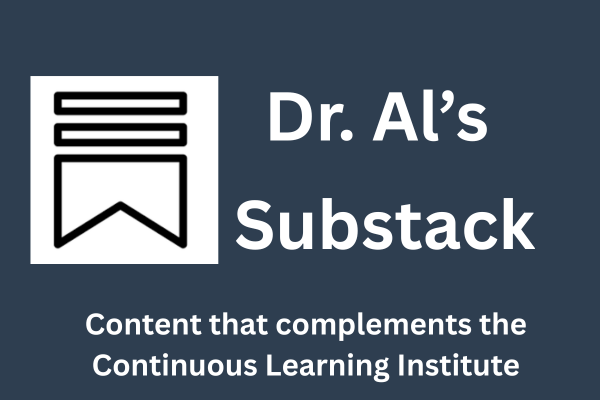Student Success & Equity with Eloy Oakley

LISTEN TO THE EPISODE:
Learn how Chancellor Eloy Oakley's community college student experience continues to inform him, why dismantling standardized tests improves equity, what baseball has to do with Guided Pathways, and advice for future higher ed leaders.
In this episode, I interview Eloy Ortiz Oakley, California Community Colleges Chancellor.
(Scroll down to access the transcript.)
We discuss the following topics:
3:34:14: The transition from the military to community college student--the experience that informs Chancellor Oakley's work.
8:06:17: Placement tests and the counselor who made a difference.
15:14:04: Assembly Bill 705 and the dismantling of standardized tests to improve equity.
Resources:
- About Assembly Bill 705
- CCRC Developmental Education in Community Colleges
- RP Group Resources to Support Equitable Placement Implementation
- California Acceleration Project
- Long Beach City College Promise Pathways & Multiple Measures
- Cuyamaca College Transforms Math Remediation
- Transforming Instruction in Math at Citrus College
- Closing Equity Gaps Is Not Enough
28:02:04: Guided Pathways and baseball. How does the field look like from the baseball manager's perspective?
Resources:
- CCCCO Guided Pathways
- Redesigning America's Community Colleges
- The Evolution of Guided Pathways since the 2015 publication of Redesigning America's Community Colleges
- Culture Often Eats Guided Pathways for Lunch
34:04:20: Advice for young people, NASPA Undergraduate Fellows in particular, who want to pursue leadership roles in higher education, and words of wisdom for anyone to get involved with their local community college.
Select Chancellor Oakley quotes:
"[My experience as a community college student] informs me every day I come to work because I was lucky. Our system relies too much on the luck of students like me. That's the experience that has shaped me. I'm very fortunate that I've had that experience. But the struggles that I went through just to get through college and to transfer to the University of California, Irvine, are what really keeps me coming to work."
"[Placement tests] are a piece that stuck with me. Once I had some hindsight, I thought, "Why?" That cost me almost a year and a half in the community college. I was an older adult. I was working, raising a family. There was so many times when I thought, "I can't keep doing this." I'm just going to go find a job and keep working. To this day, I'm a firm believer that those placement exams do much more harm than good. I'm glad that we finally got to the point in California where we're putting those exams in the rearview mirror."
"These tests were devastating [Long Beach City College] communities of color by placing them in remedial courses to three levels below college level math and English. These students would never get out. Yes, there would be those handful of success stories--the students that came in three levels below and transferred to Harvard. That's one in several hundred thousand episodes. Predominantly, what was happening was these students would not finish, they would drop out, and they would burn up their financial aid. They had to go to work. They had to care for their children, their families. Based on the research, we developed a multiple measures placement system at Long Beach."
"[Since AB705], we've seen tremendous increases, particularly for students of color, completing transfer level math and English. We think this has been a huge step toward equity in our system."
"The problem is that we've come to believe that these [tests] are real standards of talent and ability when in fact they have nothing to do with telling us whether a student is talented or able. All it tells us is whether or not they've had either the family resources to get ready for that test or they were fortunate enough to be enrolled in a school that really helps prepare students for that test or they were lucky. I'm really glad to see us begin to turn the corner on standardized testing."
"[Metaphorically, in terms of a baseball manager looking at guided pathways], I see the team [i.e., community colleges] coming together very well. We're now talking the same language. We know the playbook. Not every player [i.e., college] is completely adept at implementing the playbook, but we're all working off the same playbook. We've been able to link all the policy that we've created around the guided pathways framework so that people can see how it all fits together."
"Our students are some of the most resilient individuals in society. I couldn't be more prouder of this generation of students. They have shown us adults what real commitment and sacrifice is all about. They risked everything over the last year. All the protests and all the work that they've done, the voting, the turnout, they're an amazing group."
About Chancellor Oakley
Chancellor Eloy Oakley grew up in the Florence-Firestone area of South Los Angeles in the mid-1970s and early 1980s, the son of a U.S. citizen father who was schooled in Mexico and a mother who was a Mexican immigrant. After serving four years in the Army, he enrolled at Golden West College and transferred to the University of California, Irvine, where he earned his bachelor’s degree in environmental analysis and design and a master’s degree in business administration.
His career in education includes serving as an adjunct faculty member teaching in and coordinating the Environmental Technology Certificate Program at Golden West College, manager of risk services at the Coast Community College District, vice president of college services at Oxnard College, and assistant superintendent/executive vice president of administrative services at the Long Beach Community College District.
In 2007 he was appointed superintendent-president of the Long Beach Community College District, one of the most diverse community colleges in the nation, and he became increasingly well-known for providing statewide and national leadership on improving educational outcomes of historically underrepresented students.
He has served as chancellor for the California Community Colleges since December 2016. He is an ardent advocate of the Vision for Success, a look at where the California Community Colleges is succeeding and where it is falling short. This document, the North Star of the California Community Colleges, establishes a vision for improvement with clear goals and a set of commitments needed to ensure student outcomes significantly improve.
About Dr. Al Solano
Al is Founder & Coach at the Continuous Learning Institute. A big believer in kindness, he helps institutions of higher education to plan and implement homegrown practices that get results for students by coaching them through a process based on what he calls the "Three Cs": Clarity, Coherence, Consensus. In addition, his bite-sized, practitioner-based articles on student success strategies, institutional planning & implementation, and educational leadership are implemented at institutions across the country. He has worked directly with over 50 colleges and universities and has trained well over 5,000 educators. He has coached colleges for over a decade, worked at two community colleges, and began his education career in K12. He earned a doctorate in education from UCLA, and is a proud community college student who transferred to Cornell University.







